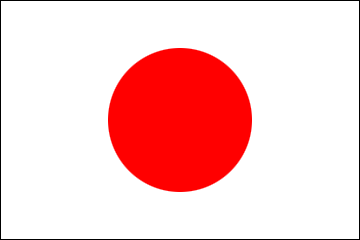Yoshi's passion for Mindanao (Vol 9: On the 80th anniversary of the end of the war)
2025/4/25
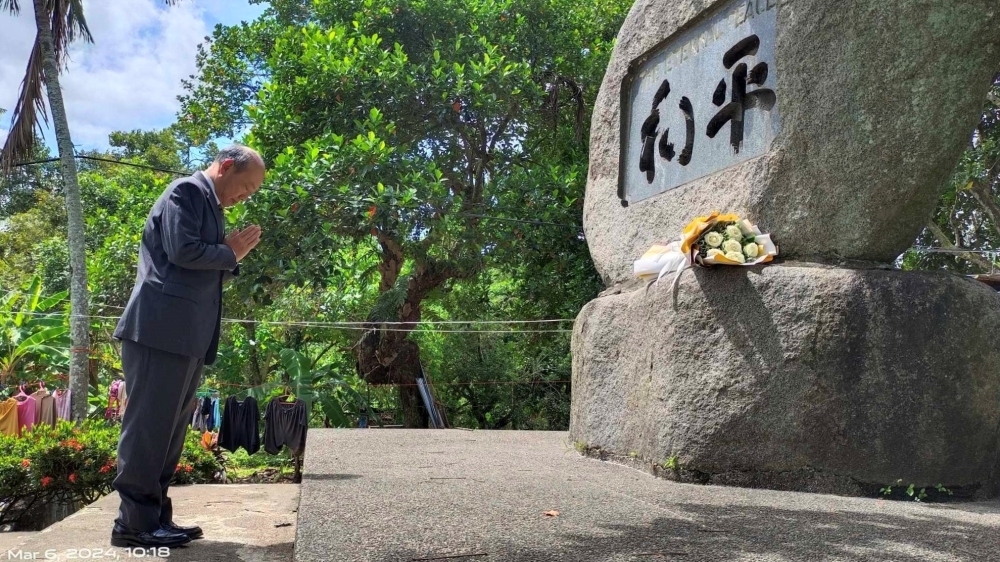 In Tamugan
In Tamugan
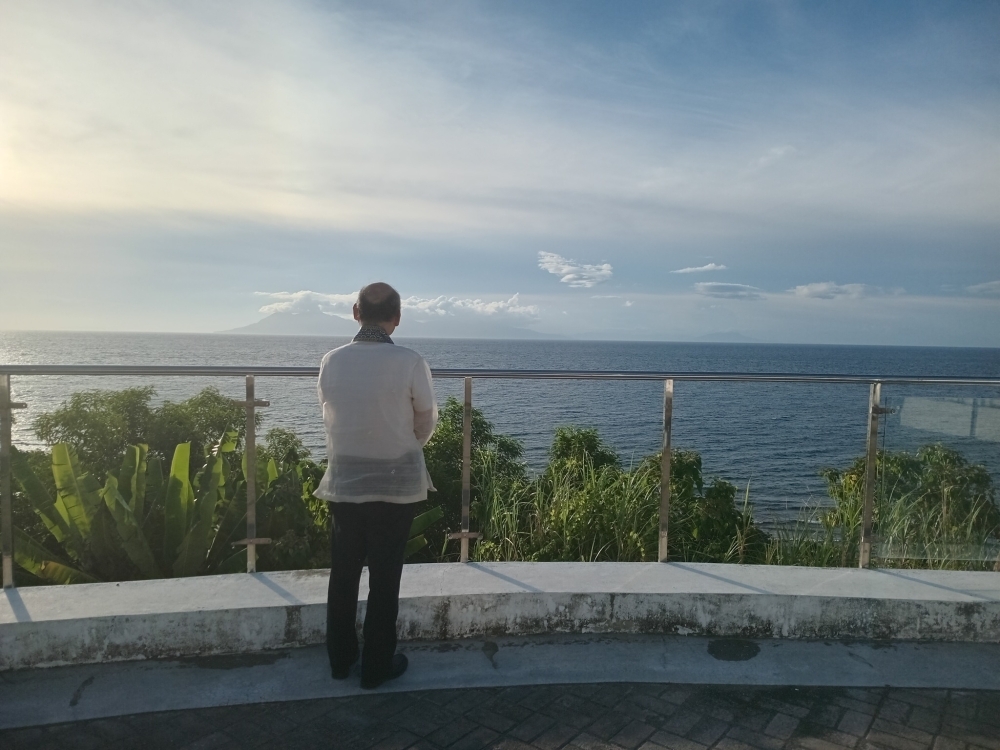 CG Ishikawa gazes at Surigao Strait
CG Ishikawa gazes at Surigao Strait
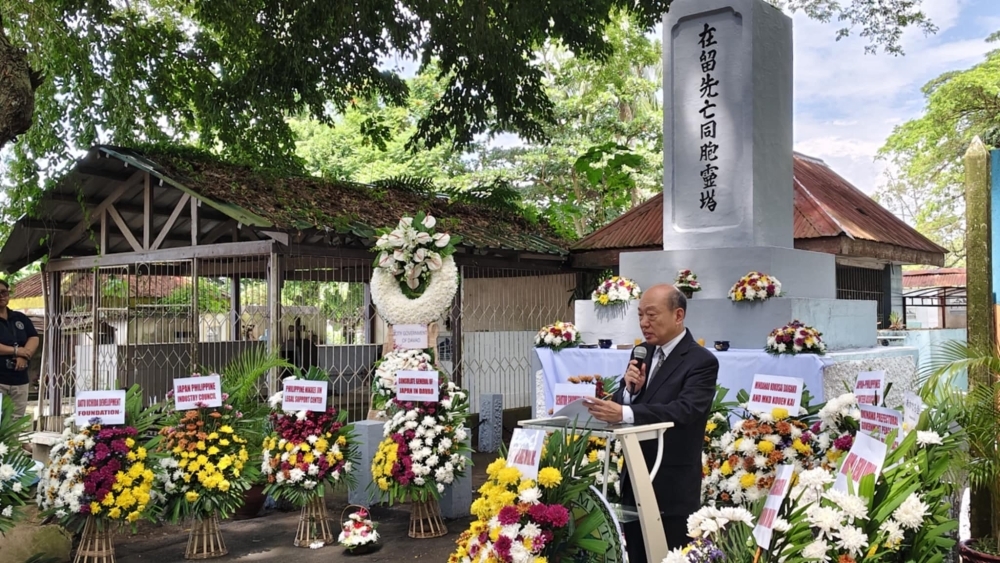 Memorial Service in Mintal
Memorial Service in Mintal
 Interview with Japanese Nationals
Interview with Japanese Nationals
This year marks the 80th year since the end of the war in 1945. Eighty years is a long time, and yet, it feels like only the recent past.
When we look back, particularly in the context of the Philippines, around 518,000 Japanese soldiers lost their precious lives here and more than 70% of their remains still rest in the mountains, fields, and seas, never returned to their homeland. To their great regret, they died far from home, not only in battle but also due to disease and starvation while praying for their home country and their loved ones. I would like to renew my heartfelt condolences to the spirits and souls of those who perished during the war.
Moreover, we should not forget that around 1,110,000 Filipinos lost their valuable lives during the war. As Japanese nationals, it is our responsibility to express deep remorse and sincere apology for the sufferings in the past. For the Filipino people, Japan was an invading force. However, after the war, Japan was reborn as a peace-loving nation. Many Japanese and Filipinos have worked tirelessly to realize the current friendly relations between the Philippines and Japan. I have great respect and gratitude for the efforts of our predecessors.
In Davao, more than 20,000 Japanese lived here before the war. They worked very hard in Abaca plantations and were highly respected by the local people. However, the war changed the destiny of the Japanese civilians. They were forced to cooperate with the Japanese Imperial Army and retreated together with them. Many civilians were massacred. Those who survived were deported back to Japan. Their wives and children were left behind here in Davao and had to hide their identities as a Japanese family. They spent indescribable post war lives facing poverty and discrimination. Many second-generation Japanese in Davao are already old, still stateless and want to be recognized as Japanese nationals. 80 years may have passed, but for them the war has not yet ended. If Japanese government doesn't sincerely support these Japanese descendants, can we still truly call it “our government”?
To the young people of Japan, I want to say: "Study history". Japanese history class in Japan's junior high and senior high school should allocate more than half of their curriculum to learn modern history, especially the second world war. We must ask ourselves: Why did kind and caring Japanese citizens start such a disastrous war? Why did Japan kill many foreigners? Could war have been avoided if we had reacted differently at certain key moments before the war? Was the turning point the Second Sino-Japanese war? The withdrawal from the League of Nations? The Manchurian Incident? Washington and London Naval Treaties? The First World War? Or the Japan-Russian War? What, truly, was the so-called “point of no return”?
I want young Japanese students to discuss these questions thoroughly. If we were there at that time, how could we have prevented the war? I strongly urge all young Japanese students to visit Chiran, Kagoshima and read the farewell notes of Kamikaze pilots, many just around 20 years old. In their notes, no feelings of hatred were written against the enemies. Instead, they only expressed their respect and appreciation to their parents and solemn pride to sacrifice their lives the following day for their country and their loved ones. All of us should never forget that just 80 years ago, they had sacrificed their young lives. We should never repeat this tragic past.
This year marks 80 years since the end of the war. Let us learn from our history, pay respect to the souls of those who sacrificed, cherish how precious peace is, and think of ways of building a future with no more wars. This is not someone else’s business. This is our own mission and responsibility. Let us make this a meaningful and special year by learning from the lessons of history to gain wisdom for our future.
April 24, 2025 Ishikawa Yoshihisa
When we look back, particularly in the context of the Philippines, around 518,000 Japanese soldiers lost their precious lives here and more than 70% of their remains still rest in the mountains, fields, and seas, never returned to their homeland. To their great regret, they died far from home, not only in battle but also due to disease and starvation while praying for their home country and their loved ones. I would like to renew my heartfelt condolences to the spirits and souls of those who perished during the war.
Moreover, we should not forget that around 1,110,000 Filipinos lost their valuable lives during the war. As Japanese nationals, it is our responsibility to express deep remorse and sincere apology for the sufferings in the past. For the Filipino people, Japan was an invading force. However, after the war, Japan was reborn as a peace-loving nation. Many Japanese and Filipinos have worked tirelessly to realize the current friendly relations between the Philippines and Japan. I have great respect and gratitude for the efforts of our predecessors.
In Davao, more than 20,000 Japanese lived here before the war. They worked very hard in Abaca plantations and were highly respected by the local people. However, the war changed the destiny of the Japanese civilians. They were forced to cooperate with the Japanese Imperial Army and retreated together with them. Many civilians were massacred. Those who survived were deported back to Japan. Their wives and children were left behind here in Davao and had to hide their identities as a Japanese family. They spent indescribable post war lives facing poverty and discrimination. Many second-generation Japanese in Davao are already old, still stateless and want to be recognized as Japanese nationals. 80 years may have passed, but for them the war has not yet ended. If Japanese government doesn't sincerely support these Japanese descendants, can we still truly call it “our government”?
To the young people of Japan, I want to say: "Study history". Japanese history class in Japan's junior high and senior high school should allocate more than half of their curriculum to learn modern history, especially the second world war. We must ask ourselves: Why did kind and caring Japanese citizens start such a disastrous war? Why did Japan kill many foreigners? Could war have been avoided if we had reacted differently at certain key moments before the war? Was the turning point the Second Sino-Japanese war? The withdrawal from the League of Nations? The Manchurian Incident? Washington and London Naval Treaties? The First World War? Or the Japan-Russian War? What, truly, was the so-called “point of no return”?
I want young Japanese students to discuss these questions thoroughly. If we were there at that time, how could we have prevented the war? I strongly urge all young Japanese students to visit Chiran, Kagoshima and read the farewell notes of Kamikaze pilots, many just around 20 years old. In their notes, no feelings of hatred were written against the enemies. Instead, they only expressed their respect and appreciation to their parents and solemn pride to sacrifice their lives the following day for their country and their loved ones. All of us should never forget that just 80 years ago, they had sacrificed their young lives. We should never repeat this tragic past.
This year marks 80 years since the end of the war. Let us learn from our history, pay respect to the souls of those who sacrificed, cherish how precious peace is, and think of ways of building a future with no more wars. This is not someone else’s business. This is our own mission and responsibility. Let us make this a meaningful and special year by learning from the lessons of history to gain wisdom for our future.
April 24, 2025 Ishikawa Yoshihisa
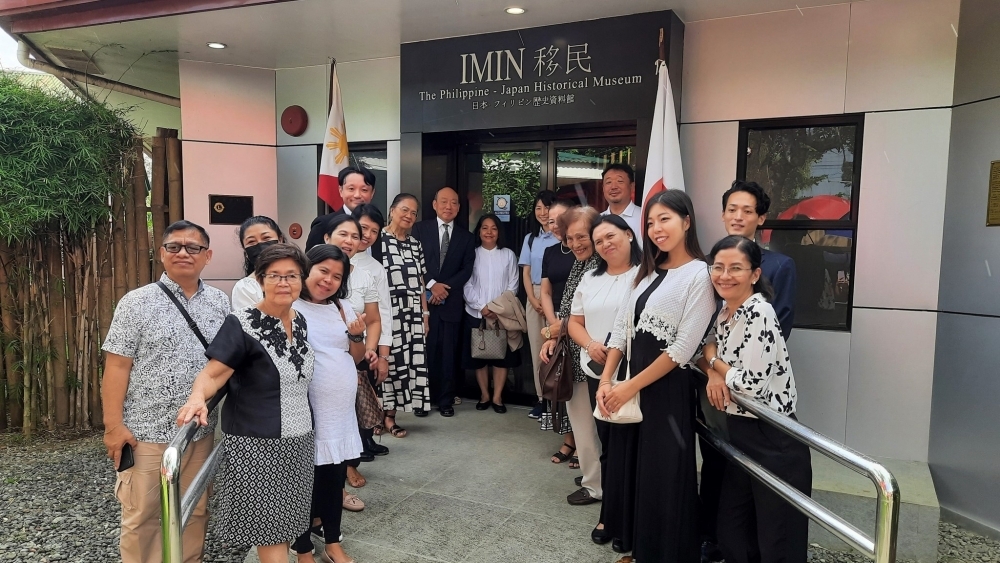 IMIN The Philippine-Japan Historical Museum in Calinan
IMIN The Philippine-Japan Historical Museum in Calinan
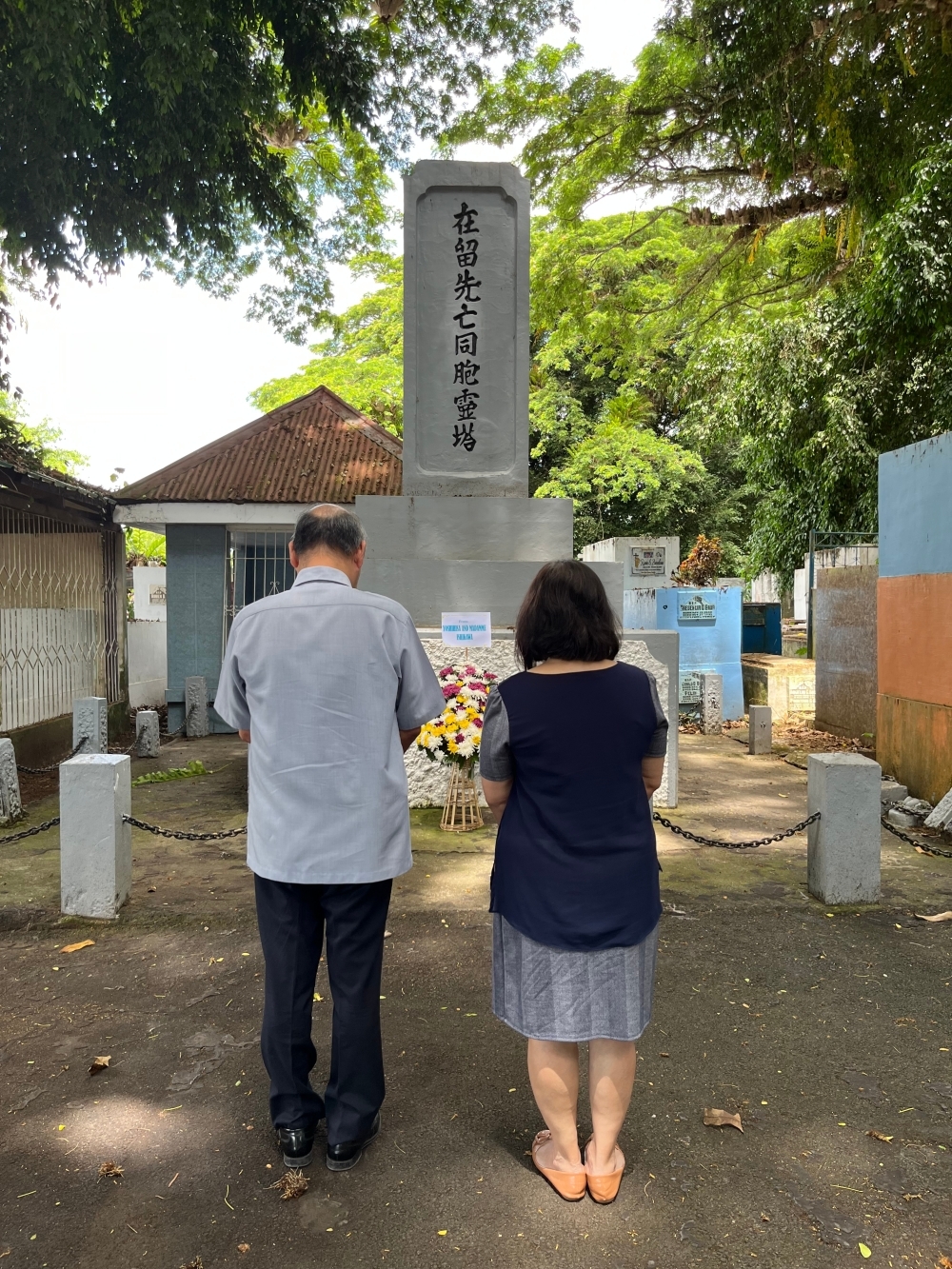 Mintal Public Cemetery
Mintal Public Cemetery
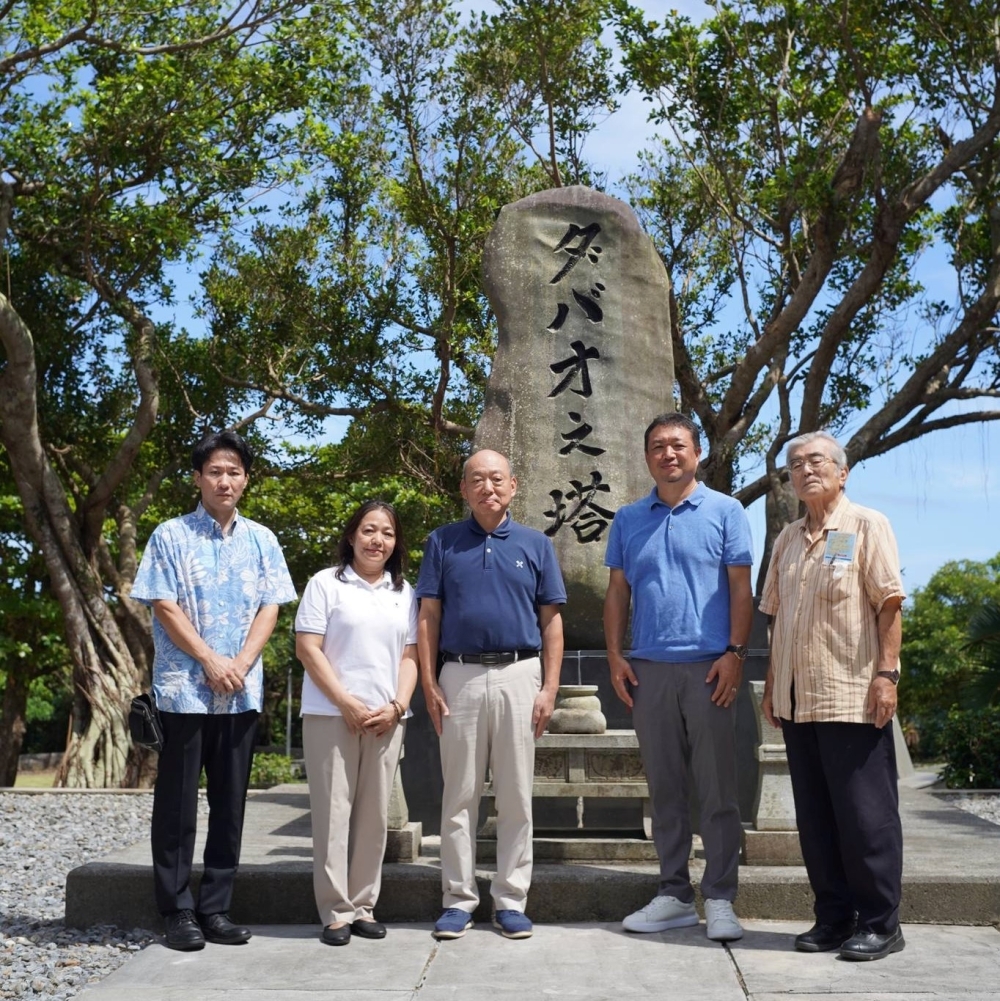 At the Peace Memorial Park in Itoman City
At the Peace Memorial Park in Itoman City
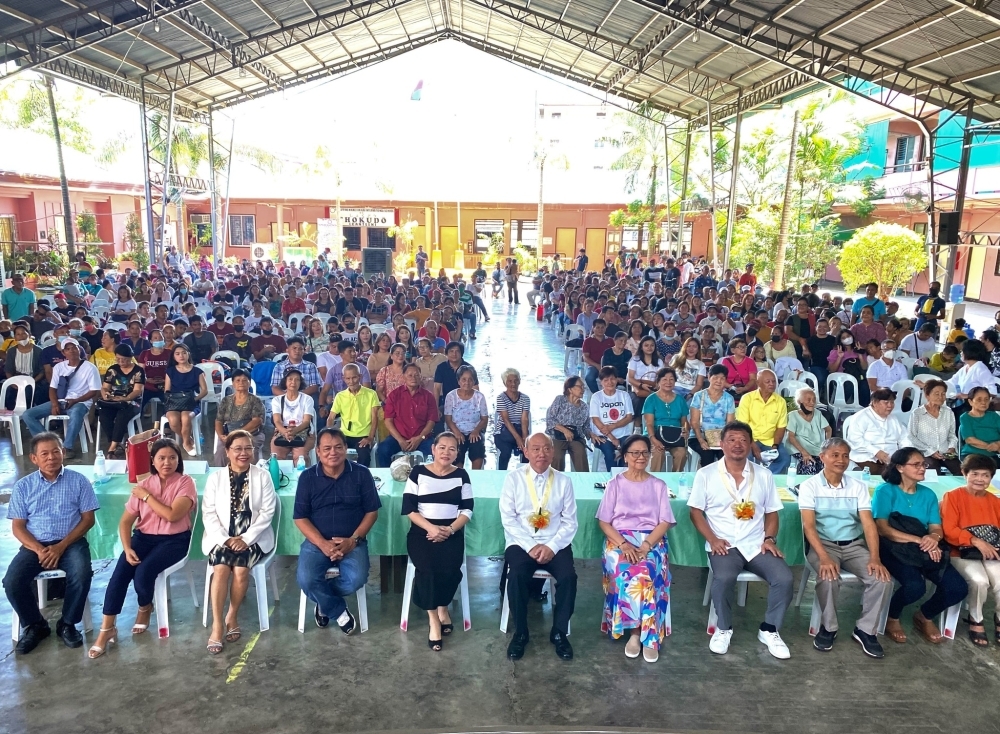 Convention of Nikkei
Convention of Nikkei
